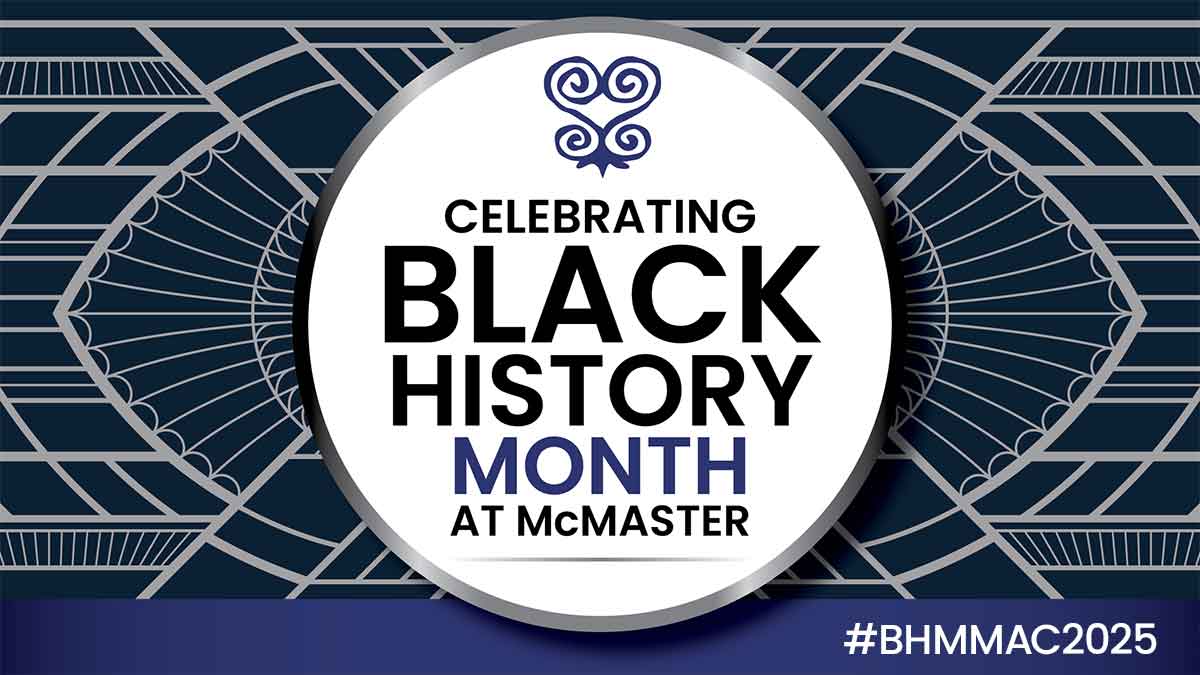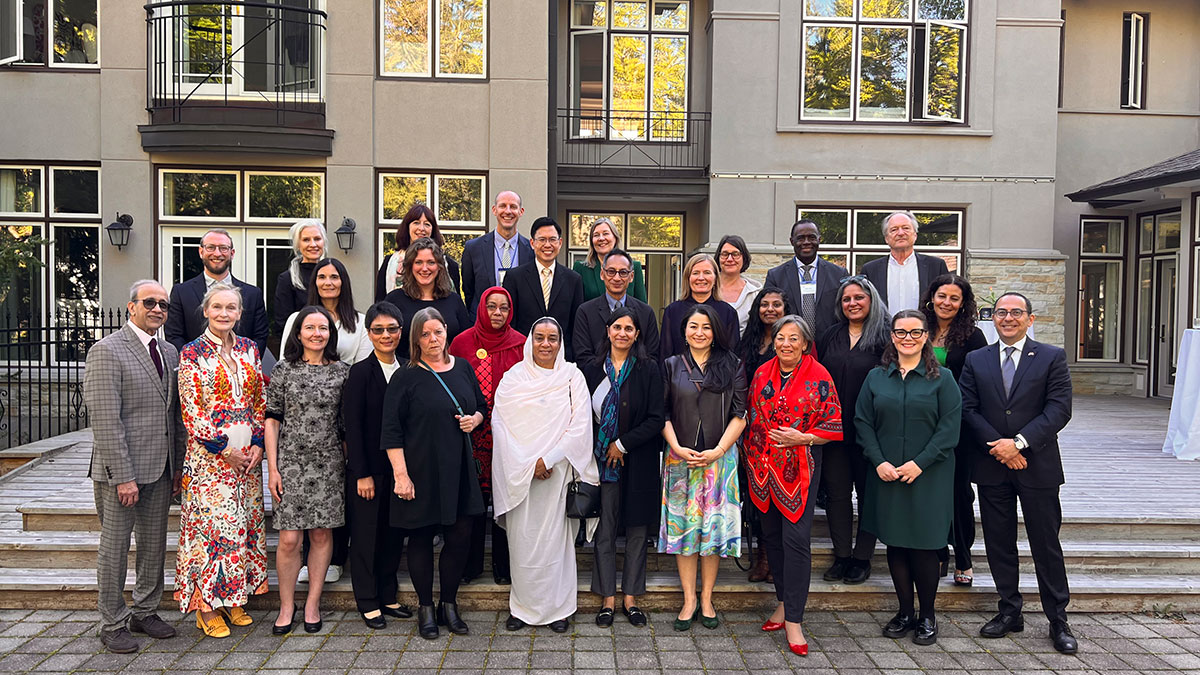Fly on the Wall: Advancing health-care professions education through research

How do we optimize the learning experience for students studying health-care professions? For the community at the McMaster Education Research, Innovation and Theory (MERIT) Centre, the answer is through research and applied science.
Sandra Monteiro is an associate professor in the Department of Medicine in the Division of Education & Innovation and the director of Simulation Scholarship at the Centre for Simulation Based Learning. Jonathan Sherbino is a professor in the Department of Medicine, emergency physician, and assistant dean of Health Professions Education Research. He is also the director of MERIT – which recently became an official research centre. Together, the two bring unique perspectives to the work they do as education scientists.
We spoke with Monteiro and Sherbino about how we select, teach and assess future health-care professionals, and why a diversity of expertise is the secret ingredient to advancing clinical education and practice.
Who are you and what perspectives do you bring to your research?
Monteiro: I have a PhD from McMaster in cognitive psychology and shortly after defending, I joined as faculty within the program that is now MERIT. My research program draws on my training in cognitive psychology – how people think, learn, and remember – and I apply an exemplar theory focus on understanding clinical reasoning. Exemplar theory explains how we make sense of new things by comparing them to what we already know from past experiences – it’s central to a lot of ways that I teach and do other research. I’m exploring how exemplar theory can benefit our efforts at improving equity, anti-racism work, or anti-fat bias, and I’ve incorporated that theory into my teaching.
Sherbino: I’m the assistant dean for Health Professions Education Research in the Faculty Health Sciences, and the director for MERIT. I’m a clinician, and I have a program of scholarship around competency-based education, which is not as active now as it once was. As a clinician, I’m able to extract ideas from my work and explore my curiosity through research to solve problems. Sandra and I have collaborated as co-contributors to a program of research around clinical reasoning – which explores why health-care professionals, specifically physicians, make errors when they are diagnosing and managing patients.
What is MERIT and what makes it unique?
Sherbino: Over four-plus decades, there has been an attempt by the Faculty of Health Sciences to seek, understand and produce evidence to inform decisions about selection, teaching, assessment, remediation and continuing education. MERIT draws on a whole variety of disciplines – health professions education is a field that’s not bound by only certain methodologies or certain types of theories. It’s that connection between someone who is a scientist and somebody who is a clinician, and that interplay of ideas and approaches to answering questions that makes it special.
I mentioned Sandra and I have co-contributed to a program of research – and that’s kind of the heart of what MERIT is. We have 75 faculty members who represent a mix of scientists and clinicians. That diversity allows us to tackle some of these complex problems that teachers and educators are facing.
MERIT has made a concerted effort at being accessible and that’s demonstrated in our offering and really key to our culture. For example, we offer a think-tank so emerging scholars who are trying to work through designing a project for the first time can consult with the entire group and be matched with scientists who understand their context.
When people think of research, they may think of laboratories, petri dishes, or clinical trials. Why is health professions education such an important scholarly area?
Monteiro: There are so many questions to be answered and from so many different perspectives. I have a background in experimentation, but I can work with someone who has training in qualitative research methods, and then the combination of that comes up with a really creative project and insightful data. It’s very rewarding working with clinicians and clinician-scientists who are serving patients but are also creating time in their schedule to evaluate the education and assessments they create, or the patient care that they’re delivering.
Sherbino: Very black and white, linear types of questions are not the questions that teachers and educators face. The need to innovate and to wrestle with complexity is the environment and the pre-existing condition for the types of questions that are asked. We are not set aside from the clinical environment – we want to be embedded within it.
Some of the programs of research within MERIT have scientists wrestling with generative AI and its impact on assessment for medical students. We have researchers at MERIT that are looking at the anti-fat bias that health professionals face every day in terms of how they develop their own identity and how they work and exist in the clinical environment. We have others who are looking at issues of large data, and looking to understand all the pieces of information that are captured around individuals interested in health professions education and what that means in terms of future inter-professional collaboration or where they might end up in practice.
Monteiro: All of the characteristics that Jonathan just described of medical education are what drew me in. In psychology, you are highly encouraged to keep things simple, and experiments are pretty much black and white – you’re testing this or that. You ask simple questions one at a time, and then you might build up a story. Whereas health professions education is high-stakes – we’re talking about nurses, rehab therapy students, and programs where patients are at the end of that training. So the impact of what happens in the classroom or in the curriculum is a little bit more salient – you don’t ever get bored.
How do you see the future of health professions education research evolving, and what are the next big challenges or opportunities?
Sherbino: I’m always cautious about predicting the future because I know I’ll 100 per cent be wrong – that’s the only thing I’m sure of. I think increasingly we need to be thoughtful about collaboration and asking questions about who is still not included in our conversations. I think we should be thoughtful about what is legitimate or what is the established status quo about how questions are asked and answered.
Monteiro: Expanding on this notion of collaboration – there’s growing dissatisfaction with scholarship that comes from the west and the north. If I were to try to predict something, that’s the closest I’d come – people are already asking how to break down some of those barriers to include some of our friends below the equator. Even in North America, all the attention goes to Canada and the U.S., but there are amazing scholars in Mexico – so we need to ask what the barriers are and work together to bring that scholarship forward.
Sherbino: There have been positive changes in cultural norms – we’re comfortable now, post-pandemic, communicating, disseminating and collaborating virtually. The geographical walls are starting to break down. There’s new ways for us to share our work and debate and discuss – rather than the traditional conference where you have to physically be in one place and you need the time, privilege and money to get there.
Any final thoughts?
Sherbino: We need to constantly ask questions to understand better, to grow, to challenge and move past misconceptions. The very nature of science is to continually ask a question. The types of research questions we ask and the types of methodologies we employ don’t work unless they are ones that engage learners, teachers and scientists in equal fashion because they can’t be done in isolation. We need to be fully engaged and fully part of that community, but equally, we have a mandate to ensure that we are growing the capacity for the next generation of education scholars to be a part of our community. The moment we’re disconnected from the Faculty is the moment that we have to question our relevance.
Monteiro: I would add it would be completely disingenuous to present a veneer that we’ve got it all figured out or to say, “Come to us and we’ll give you the one right answer for your question.” That doesn’t exist for our scientists, scholarship or the way we teach and collaborate. Our goal is to produce knowledge that’s transferable and can be incorporated into different clinical contexts.
Feature, Fly on the wall, ResearchRelated News
News Listing

Video: Here’s what you should know about bipolar II disorder
Dept. Psych, Feature, YouTube Health
6 days ago

Black History Month message from Saroo Sharda, associate dean of equity and inclusion
Community & Culture, Equity, Diversity and Inclusion, Feature
January 28, 2025

New Mary Heersink School of Global Health and Social Medicine at McMaster University
Education, Feature, Global Health
January 28, 2025
